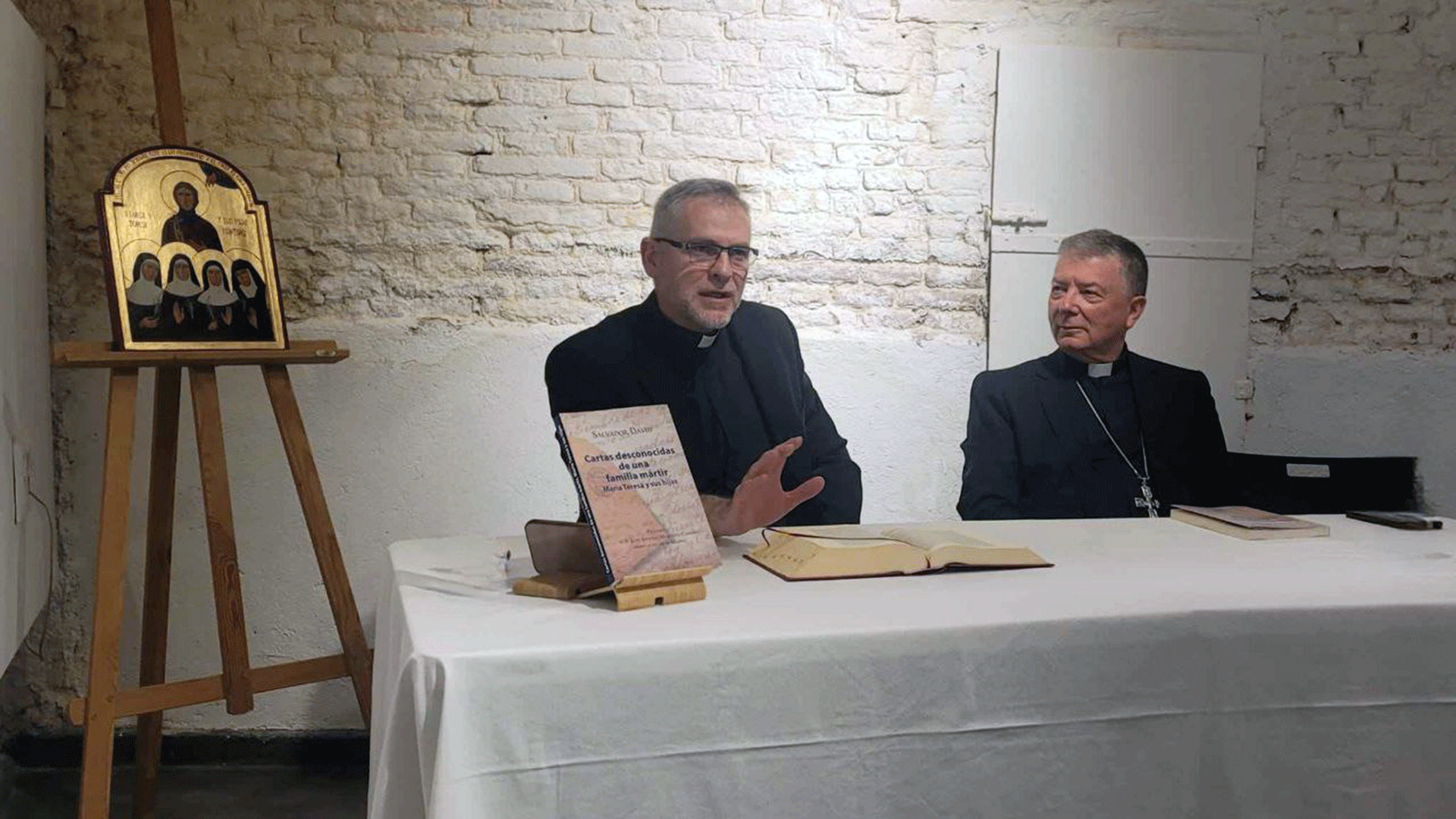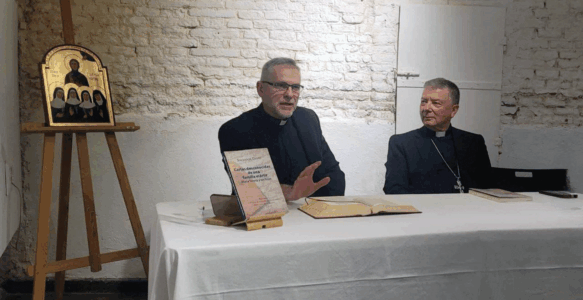PRESENTATION OF BOOK “UNKNOWN LETTERS FROM A MARTYR FAMILY”, WITH THE AUXILIAR BISHOP OF MADRID MONS. JUAN ANTONIO MARTÍNEZ CAMINO
Last Thursday, 12th of June, at 8:00 PM, at the Códice Bookstore in Madrid, the presentation of the book “Unknown Letters from a Martyr Family: María Teresa and Her Daughters” by Salvador David took place. The author was accompanied by the writer of the foreword, the Auxiliary Bishop of Madrid, Mons. Juan Antonio Martínez Camino.
In an atmosphere of extraordinary warmth and familiarity, the author clearly and briefly explained the reasons that led him to write the book. Then, spontaneously, the bishop asked him to read one of the letters—something the author did promptly, without a moment’s hesitation.
Afterwards, the bishop recounted how he was contacted by Salvador David to write the foreword for the book, and went on to outline an insightful overview of martyrdom in the 20th century. In the relaxed atmosphere of the presentation, Mons. Martínez Camino spoke in detail about the Armenian genocide, the Nazi Holocaust, the Bolshevik persecution, and that of the Spanish Civil War.
He also explained the difference between the beatification process of a religious and that of a layperson. In the case of laypeople, it is often more difficult to prove that the violent death was primarily caused by hatred of the faith. He quoted numerous details about blesseds from memory, demonstrating a deep knowledge of the witness of holiness and martyrdom in the past century, especially in Spain.
Totalitarian ideologies caused a great number of deaths in the 20th century—the most violent in history—a century “without mercy, inhuman like no other.” Despite the Declaration of Human Rights, these rights were never so trampled upon. In addition to this historical explanation for the vast number of deaths, he offered a theological reason for why the 20th century saw such a great number of martyrs.
After the injustices endured throughout the century, after the Holocaust… is forgiveness possible? The martyrs died forgiving. This is their theological mission. After the 20th century, forgiveness is indeed possible! Forgiveness began to hold value—as a positive good for humanity—with Jesus Christ; until then, it had been seen as a sign of weakness.
“The martyrs of Algemesí are part of a lineage of witnesses to forgiveness and mercy for a century and a humanity without mercy,” he concluded. The most important aspect of the Church’s history in the 20th century is martyrdom.
The contribution of the book “Unknown Letters from a Martyr Family” is small—in the broader context of 20th-century martyrdom—but very significant and of great value, as it offers a direct testimony of it.


